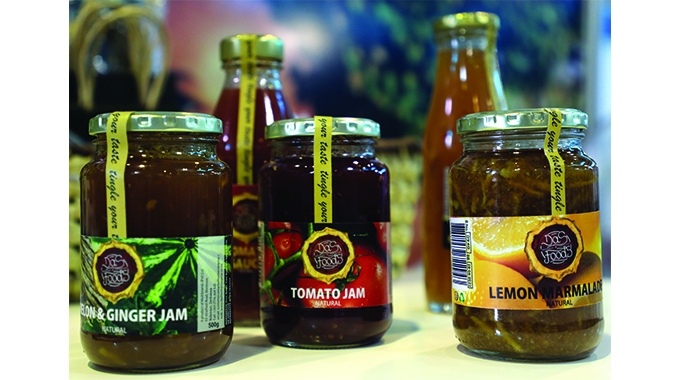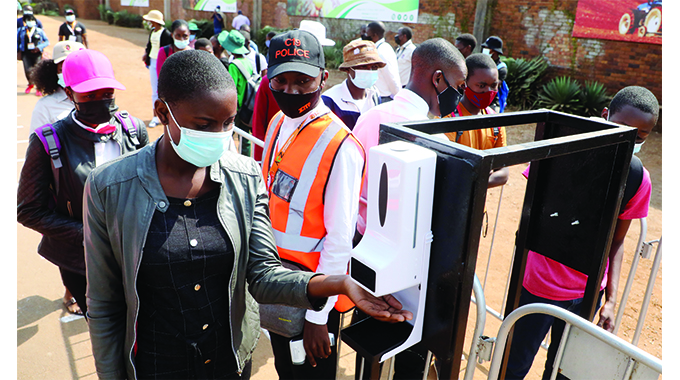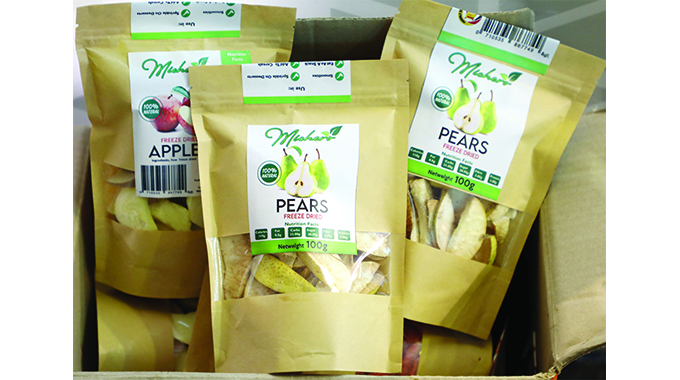Local products dominate ZITF

Chronicle Reporters
ZIMBABWE’S manufacturing sector is on rebound as evidenced by the dominance of locally produced products being exhibited at the ongoing Zimbabwe International Trade Fair (ZITF), which kicked off in Bulawayo yesterday.
Riding on the comprehensive economic policy reforms being implemented by the Second Republic led by President Mnangagwa, the productive sector is increasing its output, and this has seen local industries reclaiming their shelf space in retail shops, as well as occupying most of the stands at the prime trade show.
According to the Confederation of Zimbabwe Industries (CZI), the largest industry body in the country, businesses are bullish about future prospects, with capacity utilisation at 47 percent in the first quarter of 2021 and projected at about 60 percent by December.
The spike in capacity utilisation is attributed to growing consumer demand and sales occasioned by the bumper harvest received this year, decline in inflationary pressures, stable energy and fuel supplies, as well as the improved access to foreign currency through the formal auction system.
Economic experts view the re-awakening of the local manufacturing sector as critical in assisting the country to substitute imports and taming the historic trade deficits. This drive, particularly the thrust to enhance domestic value addition and beneficiation, is at the heart of the Government’s National Development Strategy 1 (NDS 1 2021-2025), a key building bloc towards achievement of an upper middle-income economy vision by 2030.
A snap survey conducted by the Chronicle news crew at the ZITF yesterday revealed that most local companies were displaying Zimbabwean brands, which are being well-received in the local and export market.
Local higher learning institutions such as universities and colleges have also joined hands with industry players and are designing technologies and innovative solutions, which they are showcasing to support the re-industrialisation drive.

In separate interviews, the exhibitors, who included small to medium enterprises (SMES), said the fact that locally produced goods were dominating the space at the ZITF was an indication that the Government under the Second Republic was walking the talk regarding import substitution
Treger Products (Pvt) Ltd group marketing director, Ms Sithokozile Ndlovu, said increased local production was testimony that a number of local industries were now up and running.
“All those things that people used to see in South Africa, we are saying we can now make them in Zimbabwe. At Monarch Steel, we manufacture a whole range of building materials such as aluminium entrance and pivot doors, which is an indication that our local industries are now back on the track,” she said.
“We have also come up different types of kitchen units, which are also freestanding and giving a modern look in our new range. As Treger Products, this year we decided to show that we are also moving to the new normal by making sure that all the things that people require on a daily basis can also be found under one roof.”

Ms Ndlovu said there also showcasing their new Kango enamel pots and stoves, which come in different colours.
“We are not only making black pots, but actually moved to making rainbow enamel pots even the stoves as well. We are doing this to bring out variety to our customers,” she said.
“Every home needs these solutions, which is why we are showcasing them. We have the plastic packaging, which is mainly for the commercial sector and also producing different types of pipes for irrigation purposes.”
Ms Sithulisiwe Moyo from agro-processing firm, United Refineries Limited, said: “Basically, what we are showing here is soya and cotton seeds so that people know that these are the raw materials from which we extract cooking oil.
“As we are producing our cooking oil, we have by-products called soap stocks, which we use to produce laundry soap because we don’t want to pollute our environment.”
United Refineries also produces tablets of family bath soaps with anti-bacteria properties, fortified mealie-meal.
Over the years, the Bulawayo-based company has grown and it is now exporting some of its products to neighbouring countries.
ZimTrade southern region manager Mrs Jacqueline Nyathi said gone are the days when the country relied almost entirely on imports to satisfy the local market.
She said Zimbabwe has a great potential to be a major exporter of its products. ZimTrade is supporting eight SMEs, which are participating at the ZITF under its banner.
“In all our exhibitions, we always ensure that we have indirect exhibitors that we are supporting to be part of the ZITF. This year, we have eight SMEs that are participating under the ZimTrade banner and these are first time exhibitors that we want we want to nurture and groom into exporters,” said Mrs Nyathi.
“ZITF is one of the platforms that we are using to ensure that the get to appreciate what networking and engaging with potential buyers from different backgrounds is about.”
The eight companies that are showcasing at the ZITF under the ZimTrade banner are drawn from various sectors involved in processed foods, jewellery, baobab products and haircare products.
“We have split these exhibitors into three groups and there are those that have been attending our organised training programmes in general,” she said.
“But over and above we have two programmes running as ZimTrade that is the food export master class focusing on women in business. It is about nurturing and mentoring women to venture into export. We also have the eagle’s nest, which is our youth mentorship programme.”

Among the first time SMEs exhibitors was Bulawayo-based company, Shumbakadzi Dried Fruits & Foods, which produces dried fruit and other vegetables.
“We expect to get local business as well as from other countries and customers who are going to stay with us and be loyal to us.
“We are also looking for investors who can pour some money into the company for us to grow,” said one of the shareholders, Miss Michelle Mashamba.










Comments